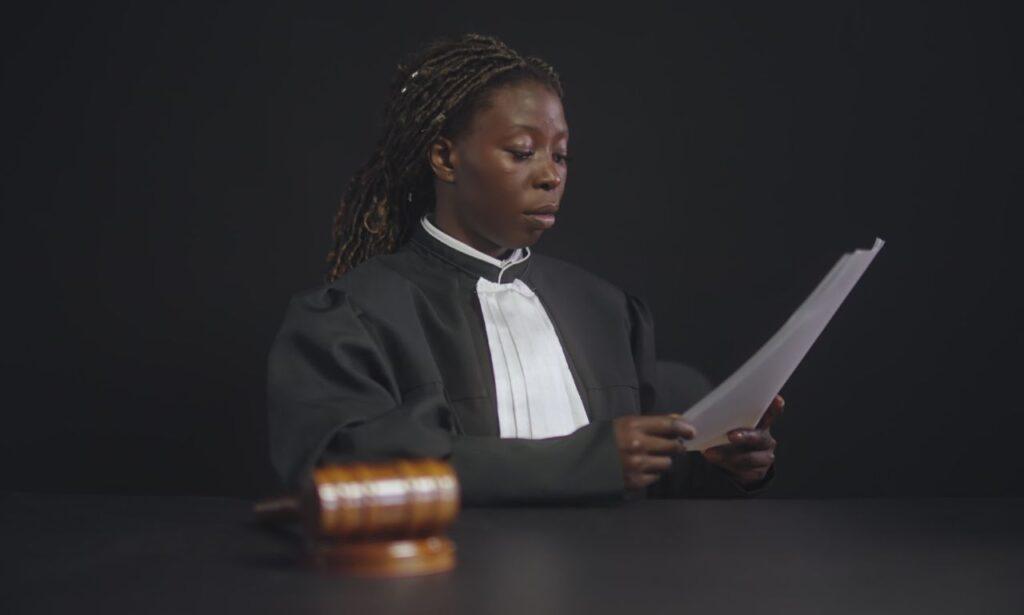A Trial Lawyer, known as a litigator, is a legal expert with the expertise to represent clients in court during civil and criminal trials. They are indispensable actors in the justice system, responsible for advocating for their clients and upholding the principles of fairness and justice in the courtroom.

Becoming a Trial Lawyer
To become a trial lawyer, one must embark on a rigorous educational journey. Aspiring trial lawyers typically pursue a Juris Doctor (JD) degree from an accredited law school. This three-year program provides a comprehensive legal education, covering various areas of law such as contracts, torts, criminal law, civil procedure, and evidence. During law school, students also have the opportunity to participate in mock trials and moot court competitions to develop practical advocacy skills.
After graduation, aspiring trial lawyers must pass the bar examination in the state where they intend to practice law. The bar exam assesses a candidate’s knowledge of state law and legal ethics. Passing the bar is a significant milestone, as it grants the lawyer the license to practice law in that jurisdiction. Passing the bar is just the beginning; successful trial lawyers continuously improve their skills through practical experience and specialized training.
The Vital Role of Trial Lawyers in the Courtroom
Representing Clients in Civil Cases
- Preparing and Filing Legal Documents: Trial lawyers play a crucial role in initiating the legal process. They represent plaintiffs (those filing the lawsuit) and defendants (those being sued). They are responsible for drafting and submitting various legal documents, such as complaints, motions, and briefs. These documents outline the parties’ positions, the legal issues involved, and the relief sought.
- Investigating and Gathering Evidence: Effective trial lawyers conduct thorough investigations to gather evidence supporting their client’s claims. They interview witnesses, review documents, consult with experts, and conduct site visits when necessary. The information collected during the investigation is essential for building strong cases.
- Building Strong Arguments for Tria: A critical aspect of a trial lawyer’s role is crafting compelling arguments that resonate with judges and juries. They analyze the evidence gathered during the investigation and develop legal theories to support their clients’ positions. Trial lawyers present their evidence and weave it into a persuasive narrative during the trial to convince the court of the validity of their client’s claims.
Advocating for Defendants in Criminal Cases
- Understanding Constitutional Rights and Protections: In criminal cases, trial lawyers play a crucial role in ensuring that defendants receive a fair trial and that their constitutional rights are protected. They vigorously defend their client’s rights to due process, protection against self-incrimination, and the right to a speedy and public trial, among others.
- Conducting Cross-Examinations of Witnesses: Skilled trial lawyers use cross-examination to challenge the credibility of witnesses presented by the prosecution. They ask pointed questions to reveal inconsistencies in the witness testimonies.
- Presenting Effective Defenses: Trial lawyers for defendants develop strong defense strategies. They analyze the prosecution’s case and identify weaknesses and gaps in the evidence. By presenting alternative explanations for the alleged offenses and raising doubts about the prosecution’s case, trial lawyers work to secure acquittals or reduced charges for their clients.
Navigating the Trial Process
- Jury Selection and Voir Dire: One critical aspect of the trial process is selecting an impartial jury. Trial lawyers actively participate in the jury selection process, a process known as voir dire. During voir dire, attorneys question potential jurors to identify any biases or prejudices that may affect their ability to be fair and impartial. Selecting the right jury is essential for a fair trial.
- Opening Statements and Closing Arguments: Once the jury is selected, trial lawyers deliver opening statements to introduce their cases to the jury. The opening statement provides an overview of the evidence they will present and the arguments they will make. At the end of the trial, trial lawyers deliver closing arguments. They summarize the evidence presented and persuade the jury to find in favor of their clients.
- Presenting Evidence and Exhibit: During the trial, trial lawyers present evidence and exhibits to support their arguments. This can include documents, physical evidence, expert testimony, and witness testimony. Trial lawyers must effectively present this evidence to the court, ensuring it is admissible and compelling.
Negotiating Settlements
- Trial lawyers are not only skilled in the courtroom; they are also adept negotiators. They explore alternative dispute resolution methods. They are mediation and arbitration, to reach favorable settlements for their clients without the need for a full trial.
- Mediation involves a neutral third party (the mediator) assisting the parties in reaching a mutually agreeable resolution. Trial lawyers representing their clients in mediation work to find common ground and craft settlement terms that benefit their clients.
- Trial lawyers advocate for their clients during arbitration, presenting evidence and making legal arguments to support their clients’ positions.
- Negotiating settlements outside the courtroom can save time, money, and emotional strain for all parties involved.
Ethical Considerations for Trial Lawyers
Maintaining the integrity of the legal profession is paramount for trial lawyers. They uphold professional responsibilities and maintain the confidentiality of their client’s information. Trial lawyers are bound by strict codes of conduct and legal ethics set forth by professional organizations and state bar associations.
Ethical considerations for trial lawyers include ensuring zealous representation of their clients within the bounds of the law, avoiding conflicts of interest, and handling client funds responsibly.
Challenges and Rewards of Being a Trial Lawyer
- Being a trial lawyer comes with its share of challenges. The courtroom is an environment of intense pressure and high stakes, which demands resilience and composure. Trial lawyers may face long working hours when preparing for trials. They must effectively manage their caseloads to provide the best representation for their clients.
- The emotional toll of representing clients in difficult cases, in criminal defense or emotionally charged civil cases, can be challenging. Trial lawyers often find themselves dealing with clients experiencing significant stress and uncertainty, requiring empathy and support legal advocacy.
- The rewards of being a trial lawyer are numerous. The satisfaction that comes from helping clients obtain justice and ensuring fairness in the legal system makes the challenges worthwhile. Trial lawyers have the opportunity to make a meaningful impact on their clients’ lives and contribute to the advancement of justice in society.
Famous Trial Lawyers in History
Several trial lawyers have left their mark on the legal profession throughout history. They have been involved in landmark cases that have shaped the course of legal history and set precedents for future generations of trial lawyers.
Famous trial lawyers Clarence Darrow, Johnnie Cochran, and Ruth Bader Ginsburg are among those who have made enduring contributions to the field of law.
Landmark cases, Brown v. Board of Education, Roe v. Wade, and Miranda v. Arizona, are examples of trials that have had a profound impact on legal jurisprudence and civil rights.
Trial lawyers are essential actors in the justice system. They are championing the rights of their clients and ensuring that justice prevails in the courtroom. Their tireless dedication and unwavering commitment to their clients’ causes make them indispensable in upholding the principles of fairness and justice in society. Whether representing plaintiffs or defendants, trial lawyers play a vital role in the pursuit of truth and equitable outcomes in our legal system. Their passion for justice, advocacy skills, and adherence to ethical standards ensure that the justice system remains a cornerstone of democracy and civil society.
Keep Reading: How do Lawyers Handle Non-Payment Issues with Clients? From Negotiation to Litigation






